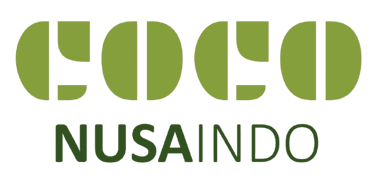♻️ 6.4 Million Tons of Coconut Husk Waste: Problem or Opportunity?
OVANDRYCJ
7/11/20252 min read


Indonesia is known as one of the world’s largest coconut producers. Yet behind this remarkable output lies a striking irony: millions of tons of coconut husk waste remain underutilized. According to a study by Elna Wahyuning Tyas from ITS (2018), out of 18.3 million tons of coconuts produced annually, approximately 35% consists of husk—which means around 6.4 million tons of coconut husk waste is generated every year.
“Coconut husk is both an economic opportunity and an environmental challenge. If left unprocessed, it becomes waste that burdens the land and local ecosystems.” — (Tyas, 2018)
🌾 What Is Coconut Husk?
Coconut husk is the coarse layer that surrounds the shell. It is often seen as useless waste after the water and flesh are extracted. Traditionally, it’s burned for fuel, used as floor mats, or simply discarded. However, coconut husk contains high lignocellulose fiber and can be processed into a range of high-value products:
Cocopeat: an organic soil substitute ideal for farming
Cocofiber: used in mattresses, car seats, industrial carpets
Coconut husk briquettes: renewable biofuel alternative
Composite boards & home decor: rustic furniture and green interior solutions
📊 The Coconut Husk Waste Reality in Indonesia
DescriptionQuantityAnnual coconut production18.3 million tonsHusk proportion per fruit35%Total husk waste≈ 6.4 million tons/year. Unfortunately, only a small portion of this waste is currently processed. The rest accumulates as organic waste, burdening farmers and local environments.
🌍 From Waste to Export Value
With global demand for coconut-based derivatives like cocopeat and cocofiber on the rise, now is the perfect time for Indonesia to seize this opportunity. Coco Nusa Indo sees tremendous potential here: connecting local producers with abundant husk waste to global buyers seeking sustainable products. We believe coconut husk is not waste—it is a strategic asset for the future of sustainable agriculture, bioenergy, and green industry.
🚀 Call to Action
To local producers: Don’t throw away your husk—let us help you process and market it.
To global buyers: If you're looking for premium cocopeat and cocofiber made from Indonesia’s finest coconut husks, Coco Nusa Indo is your trusted and neutral sourcing partner.
“What may be trash to some can be gold to those who see the opportunity.”
Reference:
Tyas, Elna Wahyuning. (2018). Development of Coconut Husk Fiber Materials for Rustic Home Decor. Institut Teknologi Sepuluh Nopember (ITS).
View Journal
Our social media
Connecting local producers with global markets.
Contact us
Email Us
Coconusaindo © 2025. All rights reserved.
